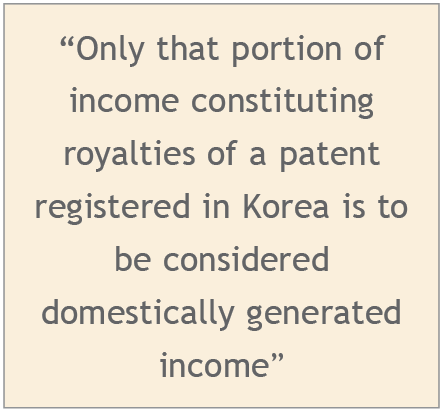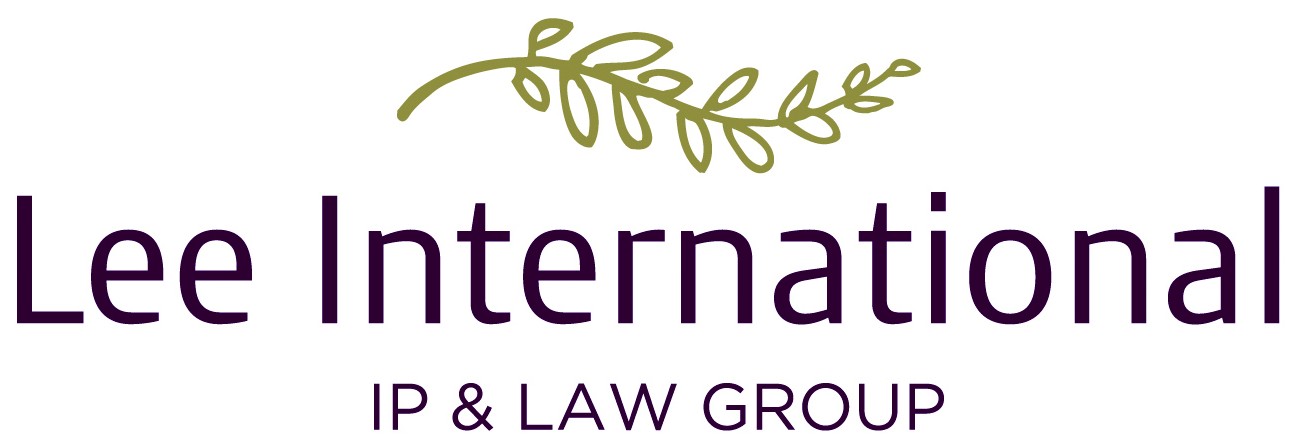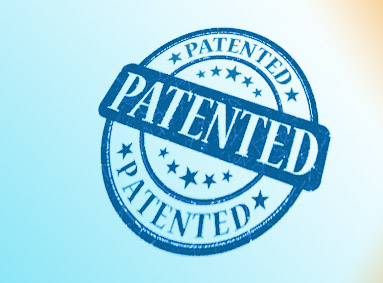
By Yi So-yeon, Lee International
Recently, the Supreme Court of Korea upheld a lower court judgment finding that under the Korea-US Income Tax Convention, where a foreign corporation has given a patent licence to a company in Korea but has not registered its patent in Korea, then the income paid to that foreign corporation from Korea for the use of such patent licence would not be considered domestically generated income, and not subject to Korean tax liabilities.
In that case, a Korean company brought an action against the Korea Tax Office, challenging a decision by the Tax Office that the Korean company should have withheld corporate taxes from licence fees that it paid to a US company for the Korean company’s use of the patented invention in Korea. The US company had registered its patent in the US and licensed it to the Korean company without registering the patent in Korea.
The Supreme Court’s holding is consistent with prior law and precedent in Korea. Pursuant to the Korean Corporate Tax Act, a foreign company is required to pay corporate tax in Korea only when it has domestically generated income in Korea. Any entity in Korea that pays certain domestically generated income to a foreign company, as provided for in Article 93, Subparagraph 9 of the Act, has the obligation to withhold from the payment any required corporate tax. Article 93, Subparagraph 9 of the former Corporate Tax Act (Article 93, Subparagraph 8 of the current Act) specified that when there is a use and/or payment for the use of certain patent rights in Korea, any income generated from such transfer of those rights and payment is subject to the collection of a withholding tax as domestically generated income. But under various double tax avoidance agreements on income, whether such payments constitute domestically generated income has been determined based on the place where the patent rights have actually been used. Payments made for patent rights that are used overseas may not be deemed to be domestically generated income, even if the payments were made from Korea.
Additionally, the former Act provided that for any patents that are required to be registered in Korea to be exercised in Korea, if such patents have been registered outside Korea but used in Korea for the production or sale of goods, the patent rights are deemed to have been used in Korea, notwithstanding the failure to register such patent in Korea.
 However, Article 28 of the Adjustment of International Taxes Act states that when classifying domestic sources of income of a non-resident or a foreign corporation, the provisions of a tax treaty shall be preferentially applied, notwithstanding applicable domestic laws and regulations such as Article 93 of the Corporate Tax Act. In this regard, Article 14(4) of the Korea-US Income Tax Convention defines the term “royalties” as used in this Article to mean payment of any kind made as consideration for the use of, or the right to use patents. Article 6(3) of the Convention also states that royalties described in paragraph (4) of Article 14 (Royalties) shall be treated as income from sources within one of the Contracting States, only if paid for the use of or the right to use such property within that Contracting State.
However, Article 28 of the Adjustment of International Taxes Act states that when classifying domestic sources of income of a non-resident or a foreign corporation, the provisions of a tax treaty shall be preferentially applied, notwithstanding applicable domestic laws and regulations such as Article 93 of the Corporate Tax Act. In this regard, Article 14(4) of the Korea-US Income Tax Convention defines the term “royalties” as used in this Article to mean payment of any kind made as consideration for the use of, or the right to use patents. Article 6(3) of the Convention also states that royalties described in paragraph (4) of Article 14 (Royalties) shall be treated as income from sources within one of the Contracting States, only if paid for the use of or the right to use such property within that Contracting State.
In earlier cases the Supreme Court ruled that in light of the interpretation of the above articles, any patent licence is deemed to be valid only in the territory of a country where such patent has been registered. So when a US corporation domestically holds a patent licence by having its patent registered in Korea, the income paid to such corporation for the use of such patent licence within Korea may be deemed to be domestically generated income. In contrast, if a US corporation has not registered its patent in Korea, but has registered its patent only overseas, then any income paid to such company from Korea related to such patents cannot be deemed to be domestically generated income in Korea.
In the most recent case, the court determined that in accordance with the above legal principles, only that portion of income constituting royalties of a patent registered in Korea is to be considered domestically generated income. Such judgment once again makes clear the position of the Supreme Court that when a foreign company has registered its patent only in an overseas country and not in Korea, any income paid to such company from Korea related to such patent cannot be considered domestically generated income. Therefore, Korean corporate taxes should not be withheld from the royalty payments being made to the foreign company.

T: 82 2 2262 6288
F: 82 2 2279 5020


